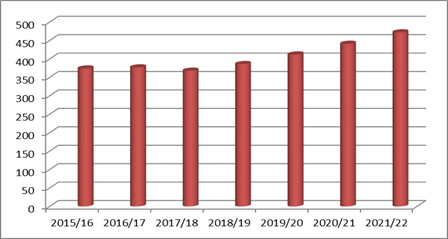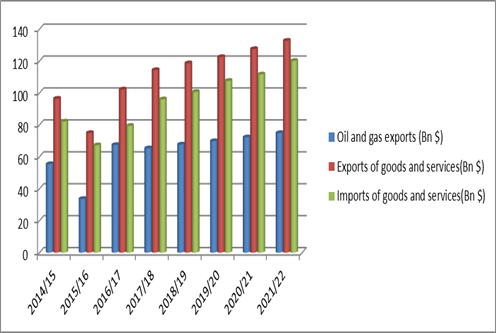Baku, Azerbaijan, Feb. 28
By Emil Ilgar – Trend:
Iran is achieving an impressive recovery in economic growth after the lifting of nuclear sanctions in 2016, maintaining inflation in single digits, and stabilizing the foreign exchange market, the International Monetary Fund said.
According to a report, released by IMF Feb.28, given the renewed uncertainty, this international body emphasized the importance of maintaining prudent macroeconomic policies and building buffers, strengthening the financial sector, and advancing reforms to lessen Iran’s reliance on oil and develop the private sector.

IMF saw an urgent need for financial sector reforms to sustain financial stability and finance growth.
IMF also welcomed Iranian authorities’ commitment in this regard.
“They recommended enhanced supervision of distressed banks and an asset quality review to identify viable banks that warrant recapitalization and nonviable banks to be resolved. They encouraged the authorities to support recapitalization of public banks with measures that improve their commercial viability and wind down directed credit schemes. They looked forward to the approval of the new banking bill that would give the Central Bank of Iran (CBI) the supervisory powers to implement reforms,” the report says.

IMF also encouraged quick passage of the central bank bill to modernize the monetary policy framework and provide greater operational independence to the CBI to pursue low and stable inflation.
The report says Iran has faced economic sanctions that contributed to severe damage in its correspondent banking relationships disconnecting Iran from the global financial system and disrupting cross-border flows including trade finance and remittances.
“Despite the lifting of sanctions last January, Iranian banks face protracted difficulties in re-entering the international financial system through correspondent relationships with global banks”.
IMF added “that the important challenges that prevent Iranian banks fully-reconnecting to global banks remain. Those mostly relate to remaining U.S. sanctions as well as the regulatory environment of enforcement, the significant deficiencies in Iran’s Anti-Money Laundering and Combating the Financing of Terrorism (AML/CFT) framework including lack of transparency of Iranian companies. The absence of larger correspondent banks (Tier I) can hamper trade and investment, as large-scale operations often require banks with adequate financing capacity.”





